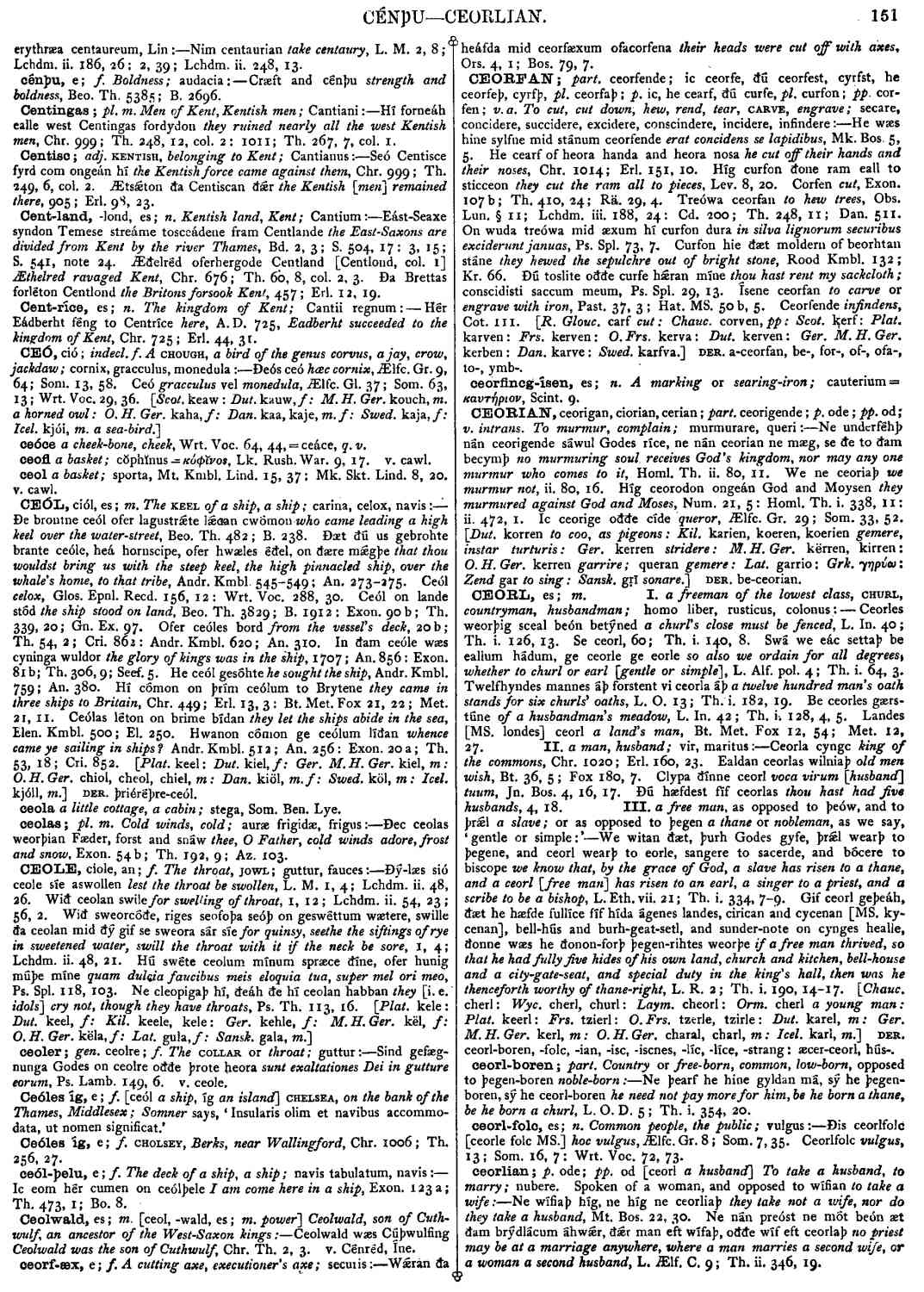CEÓL
- noun [ masculine ]
-
Ðe brontne ceól ofer lagustrǽte lǽoan cwómon
who came leading a high keel over the water-street,
- Beo. Th. 482 ;
- B. 238.
-
Ðæt ðú us gebrohte brante ceóle, heá hornscipe, ofer hwæles éðel, on ðære mǽgþe
that thou wouldst bring us with the steep keel, the high pinnacled ship, over the whale's home, to that tribe,
- Andr. Kmbl. 545-549 ;
- An. 273-275 .
-
Ceól
celox,
- Glos. Epnl. Reed. 156, 12: Wrt. Voc. 288, 30 .
-
Ceól on lande stód
the ship stood on land,
- Beo. Th. 3829 ;
- B. 1912: Exon. 90b ;
- Th. 339, 20 ;
- Gn. Ex. 97 .
-
Ofer ceóles bord
from the vessel's deck,
- 20b ;
- Th. 54, 2 ;
- Cri. 86a: Andr. Kmbl. 620 ;
- An. 310 .
-
In ðam ceóle wæs cyninga wuldor
the glory of kings was in the ship,
- 1707 ;
- An. 856: Exon. 81b ;
- Th. 306, 9 ;
- Seef. 5 .
-
He ceól gesóhte
he sought the ship,
- Andr. Kmbl. 759 ;
- An. 380 .
-
Hí cómon on þrím ceólumto Brytene
they came in three ships to Britain,
- Chr. 449 ;
- Erl. 13, 3: Bt. Met. Fox 21, 22 ;
- Met. 21, 11 .
-
Ceólas léton on brime bídan
they let the ships abide in the sea,
- Elen. Kmbl. 500 ;
- El. 250 .
-
Hwanon cómon ge ceólum líðan
whence came ye sailing in ships?
- Andr. Kmbl. 512 ;
- An. 256: Exon. 20a ;
- Th. 53, 18 ;
- Cri. 852 .
Bosworth, Joseph. “CEÓL.” In An Anglo-Saxon Dictionary Online, edited by Thomas Northcote Toller, Christ Sean, and Ondřej Tichy. Prague: Faculty of Arts, Charles University, 2014. https://bosworthtoller.com/6036.
Checked: 1